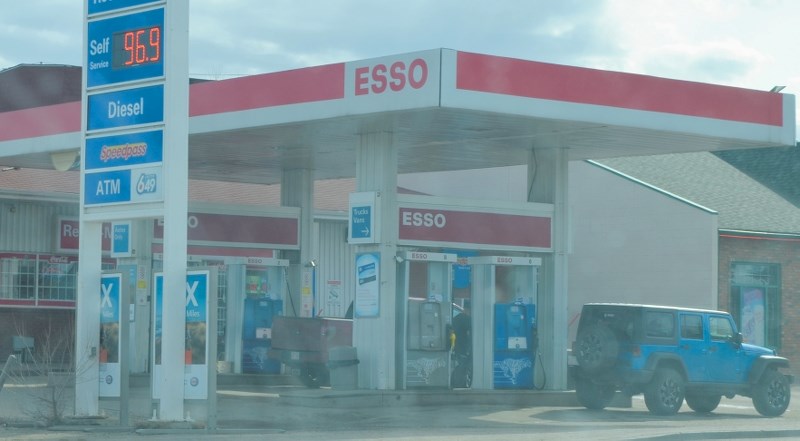With the entire province enjoying bottomed-out gas prices in recent times following the latest plunge in oil prices, the prices at the pumps have slowly started to creep back up again. But experts are saying don't expect that trend to stick.
The price for crude oil is hovering around the US $56 per barrel mark when looking at Western Texas Intermediate (WTI). With that, gas prices have gone back up past the 90-cent per litre mark in the Lakeland. Does this mean motorists can expect to see the usual summer spike in gas prices? Author of Petropolitics and Associate Professor Emeritus at the University of Calgary Alan MacFayden said not likely.
“The statistics I've been seeing show that oil stock piles are unusually high at the moment. If that's true, going into the summer that will moderate the price rise to some degree,” explained MacFayden.
The trend we're seeing in oil prices currently, MacFayden said, could be compared to what happened in 1986. Following a dramatic increase in gas prices by the Organization for Petroleum Exporting Countries (OPEC), like now, the price of a barrel of oil fell rapidly.
“In the short run, the market is inelastic. People just can't change their behaviour very much,” said MacFayden. “Over time there's a fair amount of responsiveness, so OPEC started putting up prices and they discovered sales were falling. In fact if you compare 1979 to 1985, the prices were twice as high.”
Following that, production increased and the price of oil stayed low for another 10 to 12 years according to MacFayden, who added that it's similar to what's happening now with an increased supply of the commodity.
Senior Petroleum Analyst for GasBuddy.com, Dan McTeague said there are a number of factors that contributed to the recent increase in gas prices, which caught many people off-guard.
“That had to do with the colder weather and some maintenance issues at several refineries and of course, labour disputes in the States. All of these things have led to price anomalies where it started going up in February and in May those trends will start to reverse themselves.”
McTeague explained that at the very least, prices will stay well below last year's. At this time last year, a barrel of oil was going for $100.57 compared to its current price. Subsequently, on average, Canadians are paying around 25 to 30 cents less at the pumps than this time last year.
The reason drivers are paying more at the pump compared to the price per barrel is due to the trading value of the Canadian dollar.
“On Apr. 10, 2014 we were looking at 109 Canadian pennies to buy a U.S. dollar, today it takes 126. So you've lost value because of that. We price all of our petroleum products at U.S. terms, so as the Canadian dollar weakens, so does the ability to pass on these lower crude prices,” explained McTeague.
For example, when looking at WTI at a barrel of oil priced at US $51.64. Multiplied by the current Canadian dollar, that barrel actually costs around $65, which equals a 9-cent per litre difference.
Heading forward, MacFayden expressed that the oil market is hard to predict, as there are so many uncontrolled variables in play.
“The uncertainty comes from two sources. Some of it is just from how OPEC will stand together and behave. OPEC certainly has an interest in keeping the price at a reasonably high level because it means revenue for them, but not so high that they lose in way of sales.”
He went on to say that the second major factor is the political instability in oil producing countries.
“If there's a revolution in Iran or a revolt in Saudi Arabia, it would have a dramatic effect on the market and you certainly can't predict those things.”
Should there be no major calamity in the near future, MacFayden said we could expect to see prices at the pumps stay relatively low.
“The market tends to over react when something happens, like what happened last fall. So prices could rise up to $55 or $60 per barrel, I can't see them going up to $90 or $100 for a while.”
McTeague echoed his sentiments, that more likely than not, motorist won't have to worry about a sudden bump in prices affecting their summer travel plans.
“I think the general trend is that there is going to be an over supply of gasoline now that refineries have to start doing what they do best, and that's turning crude into gasoline…I think you're probably looking that towards Canada Day there'll be downward pressure on prices and that could be very good for consumers for several weeks.”



